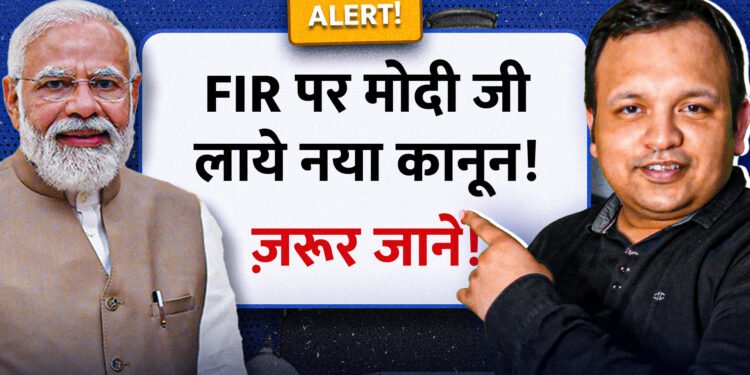Introduction
In a landmark judgment delivered on 16 January 2025 in Om Prakash Ambadkar v. State of Maharashtra & Ors. , the Supreme Court of India profoundly shaped the understanding of a Magistrate’s discretionary powers under Section 156(3) of the Code of Criminal Procedure (CrPC) and its successor, Section 175(3) of the Bharatiya Nagarik Suraksha Sanhita (BNSS), 2023.
The Court criticized the mechanical forwarding of complaints for police investigation and emphasized that judicial application of mind is essential before passing such orders. This decision strengthens procedural fairness, judicial accountability, and curbs misuse of criminal law.
Brief Facts of the Case
The case originated from a complaint filed by Advocate Nitin Devidas Kubade, who alleged that on December 31, 2011, he was assaulted and threatened by police officer Om Prakash Ambadkar. According to Kubade, the incident occurred when he was attempting to file a complaint, and the police officer not only refused to register his FIR but also used abusive language and threatened him.
After the police declined to take action, Kubade approached the Judicial Magistrate First Class in Digras, seeking an order for investigation under Section 156(3) of the Criminal Procedure Code (CrPC). The Magistrate directed the police to register an FIR and initiate an investigation based on the complaint. This order was subsequently upheld by the Bombay High Court.Indian Kanoon
However, the accused, Om Prakash Ambadkar, challenged these orders in the Supreme Court, arguing that the Magistrate had mechanically ordered the investigation without applying judicial mind or assessing whether the allegations constituted a cognizable offence. The Supreme Court found merit in this contention, noting that the Magistrate failed to evaluate the necessity of a police investigation and the sufficiency of the allegations. Consequently, the Supreme Court quashed the orders of both the Magistrate and the High Court, emphasizing the need for judicial discretion and caution in directing police investigations under Section 156(3) CrPC.
Laws Involved
- Section 156(3), Code of Criminal Procedure (CrPC), 1973: Empowers Magistrates to direct police investigations.
- Section 175(3), Bharatiya Nagarik Suraksha Sanhita (BNSS), 2023: Replaces Section 156(3) CrPC with additional procedural safeguards.
- Section 294, 504, and 506 of IPC: Related to obscene acts, intentional insult, and criminal intimidation.
Misuse of Section 156(3) CrPC
Section 156(3) of the CrPC empowers magistrates to order police investigations based on complaints. However, over time, this provision has been misused, with magistrates often directing investigations without applying judicial mind, leading to unnecessary harassment and burdening the judicial system.
In the landmark case of Om Prakash Ambadkar v. State of Maharashtra & Ors., the Supreme Court observed that the magistrate had mechanically ordered an investigation under Section 156(3) CrPC without properly analyzing whether the allegations made actually pointed to the commission of a cognizable offence. The Court emphasized that magistrates must not act as a “mere post office” and should exercise judicial discretion before directing police investigations.
Supreme Court’s Interpretation
The Supreme Court, in its judgment, underscored that magistrates must not function as mere conduits for complaints but should apply judicial mind before ordering investigations. The Court highlighted that under the new Section 175(3) of BNSS, several safeguards have been introduced:
- Mandatory Prior Application: Complainants must first approach the Superintendent of Police (SP) and submit proof of this application when seeking a magistrate’s order.
- Affidavit Requirement: Applications under Section 175(3) BNSS must be supported by an affidavit, ensuring accountability.
- Preliminary Inquiry: Magistrates are empowered to conduct a preliminary inquiry to assess the merits of the case before directing FIR registration.
- Consideration of Police Submissions: Magistrates must consider the reasons provided by police officers for refusing to register an FIR before making a decision.
These provisions aim to prevent the misuse of magisterial powers and ensure that police resources are allocated efficiently.
Key Takeaways from the Judgment
✅ Judicial discretion must be exercised carefully, not mechanically.
✅ Not every complaint warrants an FIR and police investigation.
✅ BNSS mandates an application to the Superintendent of Police before approaching Magistrates.
✅ Magistrates must conduct inquiries and consider police submissions.
✅ Additional protections exist for public servants to prevent misuse.
Supreme Court’s Critical Analysis
The Court noted a disturbing trend: Magistrates treating Section 156(3) CrPC as a rubber stamp. It strongly discouraged blind acceptance of complaints without due diligence.
Justices Pardiwala and Mahadevan emphasized that under BNSS, the judicial process must be structured, accountable, and transparent. The Court called for “reasoned orders” that reflect a clear application of mind — to ensure neither the judicial system nor law enforcement machinery is frivolously burdened.
Impact of BNSS, 2023 on Magistrates’ Powers
- Mandatory Prior Application: Complainants must first approach SP/DCP/CP.
- Affidavit Requirement: Proof of prior approach and affidavit must accompany the magistrate application.
- Preliminary Inquiry: Magistrates may examine the merits before ordering FIR registration.
- Consideration of Police Report: Police refusal reasons must be reviewed by the Magistrate.
- Enhanced Protection for Public Servants: FIRs against government officials require a senior officer’s report.
Recent Studies Supporting the Judgment
Legal analyses and commentaries have lauded the Supreme Court’s decision for reinforcing judicial accountability. Experts note that the BNSS’s provisions, such as the requirement for a preliminary inquiry and affidavit, align with the principles established in Priyanka Srivastava v. State of U.P. (2015), where the Court mandated affidavits to prevent frivolous complaints. Furthermore, the BNSS’s emphasis on considering police submissions before ordering investigations ensures a balanced approach, reducing the burden on law enforcement agencies and safeguarding individuals from unwarranted criminal proceedings.
Related Landmark Judgments
- Priyanka Srivastava v. State of U.P. (2015): Mandatory affidavit for 156(3) applications.
- Lalita Kumari v. Government of Uttar Pradesh (2013): Guidelines on FIR registration.
- Ramdev Food Products v. State of Gujarat (2015): Importance of preliminary judicial application of mind before invoking criminal machinery.
TITLE- Om Prakash Ambadkar v. The State Of Maharashtra & Ors. (Neutral Citation: 2025 INSC 139)
Need expert legal guidance? Connect with our experienced team today to receive personalized advice




